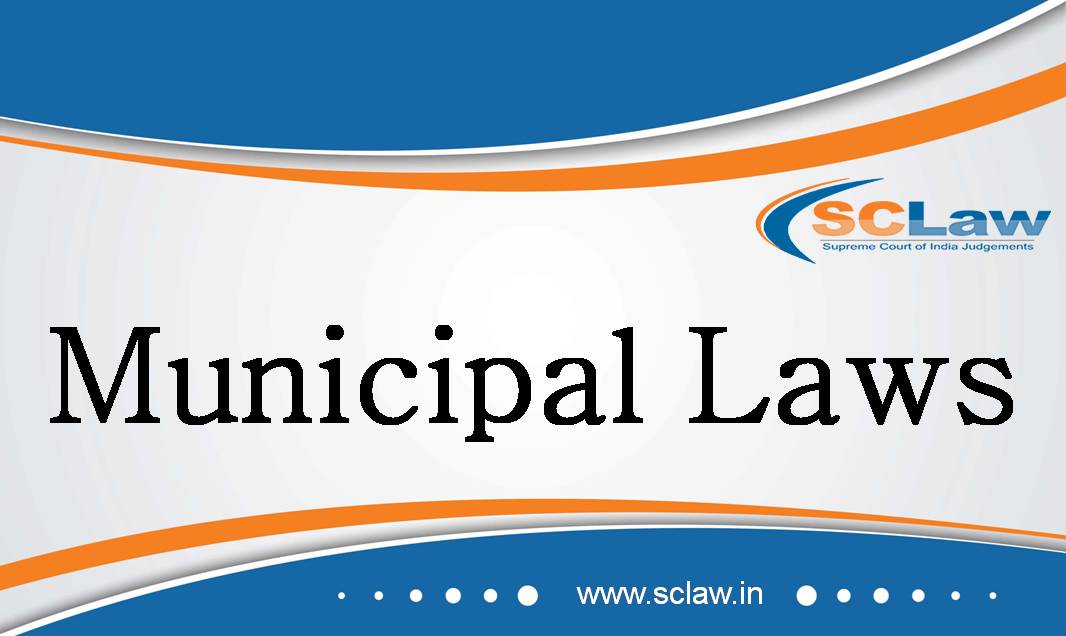Benefit of Additional licence – Export of processed iron ore – Merely because some others are granted the benefit wrongly, the appellant cannot be permitted to pray for the similar benefits – There cannot be any negative discrimination which may perpetuate the illegality
SUPREME COURT OF INDIA DIVISION BENCH CHOWGULE & COMPANY LIMITED — Appellant Vs. ASSISTANT DIRECTOR GENERAL OF FOREIGN TRADE AND OTHERS — Respondent ( Before : M.R. Shah and Krishna…
Allotment of land – Deputy Collector possess the powers to pass the orders of allotment – High Court has seriously erred in setting aside orders on the ground that the Deputy Collector was not having jurisdiction and therefore order is coram non judice – Matter is remitted to the High Court
SUPREME COURT OF INDIA DIVISION BENCH RAJARAM ABASAHEB DESHMUKH — Appellant Vs. STATE OF MAHARASHTRA AND OTHERS — Respondent ( Before : M.R. Shah and M.M. Sundresh, JJ. ) Civil…
Draft Rules of Criminal Practice, 2021 – Rule 4 – Supply of documents – Right of the accused to receive the list of documents, material, etc. would only apply after the draft rules are adopted – would lead to an anomalous situation where the right of the accused in one state, prejudicially differs from that afforded to an accused, in another.
SUPREME COURT OF INDIA FULL BENCH P. PONNUSAMY — Appellant Vs. THE STATE OF TAMIL NADU — Respondent ( Before : Uday Umesh Lalit, CJI., S. Ravindra Bhat and Bela…
Article 129 of the Constitution of India – Contemnor acts clearly lower the authority of SCOI – interfered with the due course of judicial proceedings and obstructed the administration of justice which is a clear case of criminal contempt. Held sentence of 6 months simple imprisonment and fine of Rs 12,50,000 each on two counts of civil and criminal contempt. Fine when realisd be paid to wife.
SUPREME COURT OF INDIA DIVISION BENCH IN RE: PERRY KANSAGRA – CONTEMNOR ( Before : Uday Umesh Lalit, CJI. and Pamidighantam Sri Narasimha, JJ. ) Suo-Motu Contempt Petition (Civil) No.…
Section 116A of the Representation of People Act, 1951 HELD appellant-successful candidate was not born on 30.09.1990 and was not twenty-five years old at the time of filing the nomination as the appellant has been unable to prove the said fact – the date of birth of the appellant as 01.01.1993 which have been proved the election petitioner. The issuance of the fresh passport during the pendency of the Election Petition of no value. Appeal dismissed
FULL BENCH MOHD. ABDULLAH AZAM KHAN — Appellant Vs. NAWAB KAZIM ALI KHAN — Respondent ( Before : Ajay Rastogi, B.V. Nagarathna and B.V. Nagarathna JJ. ) Civil Appeal No(S).…
HELD The management cannot be permitted to retain the amount recovered/collected pursuant to the illegal G.O. dated 06.09.2017. The medical colleges are the beneficiaries of the illegal G.O. dated 06.09.2017 which is rightly set aside by the High Court. The respective medical colleges have used/utilized the amount recovered under G.O. dated 06.09.2017 for a number years and kept with them for a number of year . Appeal dismissed with costs.
SUPREME COURT OF INDIA DIVISION BENCH NARAYANA MEDICAL COLLEGE — Appellant Vs. THE STATE OF ANDHRA PRADESH AND OTHERS — Respondent ( Before : M.R. Shah and Sudhanshu Dhulia, JJ.…
The Mumbai Municipal Corporation Act, 1888 – the capital value of the land and building must be based on situation “in presenti”- in projects which are in progress, the value addition to the property would be ongoing feature. However, it would mean that the governing principle must be the actual use and not the intended use in future.
SUPREME COURT OF INDIA DIVISION BENCH MUNICIPAL CORPORATION OF GREATER MUMBAI AND OTHERS — Appellant Vs. PROPERTY OWNERS’ ASSOCIATION AND OTHERS — Respondent ( Before : Uday Umesh Lalit, CJI.…
Rape and Murder – Death Penalty – Acquittal – Circumstantial evidence – Lapses in investigation and trial – There was no Test Identification parade conducted by any of the Investigating Officers during the course of their respective investigations – Nor any of the witnesses had identified the accused during their respective depositions – As per the settled legal position, in order to sustain conviction, the circumstances taken cumulatively should form a chain so complete
SUPREME COURT OF INDIA FULL BENCH RAHUL — Appellant Vs. STATE OF DELHI MINISTRY OF HOME AFFAIRS AND ANOTHER — Respondent ( Before : Uday Umesh Lalit, CJI., S. Ravindra…
Company Secretaries Regulations, 1982 – Regulations 92(2) and 117(2) – Applicability of Regulation 92(2) – Regulation 92(2) shall be applicable only in a case of absence and not in a case where the post of Chairman and/or office bearer has fallen vacant – There is a distinction between the absence and the post fallen vacant
SUPREME COURT OF INDIA DIVISION BENCH INSTITUTE OF COMPANY SECRETARIES OF INDIA — Appellant Vs. BIMAN DEBNATH AND OTHERTS — Respondent ( Before : M.R. Shah and M.M. Sundresh, JJ.…
Army Act, 1950 – Sections 45 and 122 – Martial Proceedings – Period of limitation for trial – For the purpose of Section 122, the two dates will be relevant i.e., the date when the alleged offence comes to the knowledge of the person aggrieved and the date on which the authority competent to initiate action comes to know about the alleged offence
SUPREME COURT OF INDIA DIVISION BENCH IC-56663X COL ANIL KUMAR GUPTA — Appellant Vs. UNION OF INDIA AND OTHERS — Respondent ( Before : Uday Umesh Lalit, CJI., and Bela…












